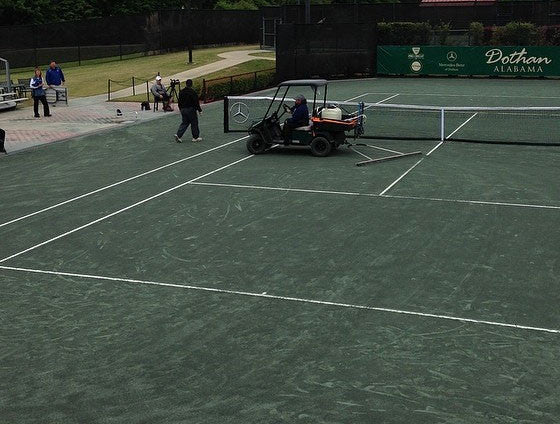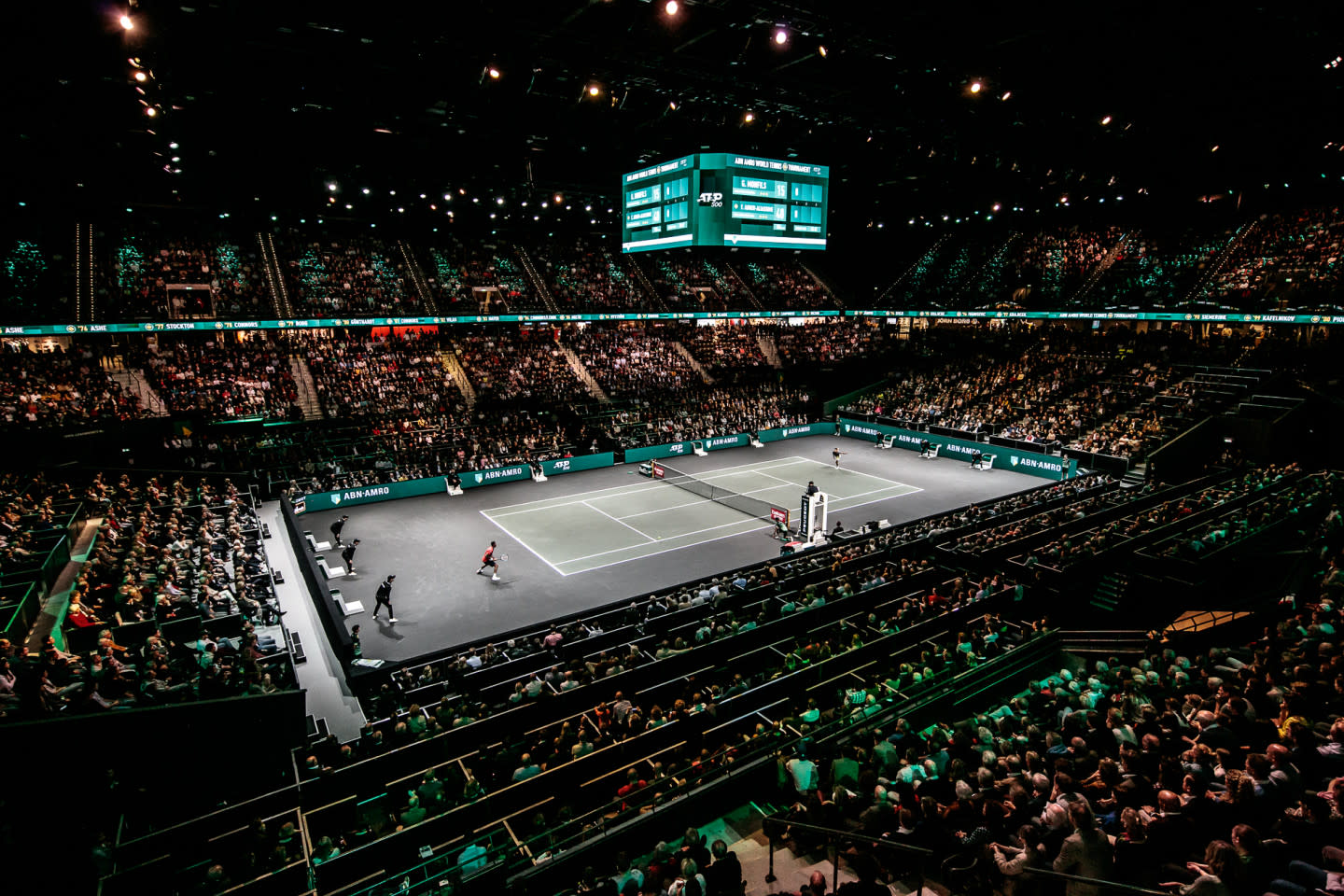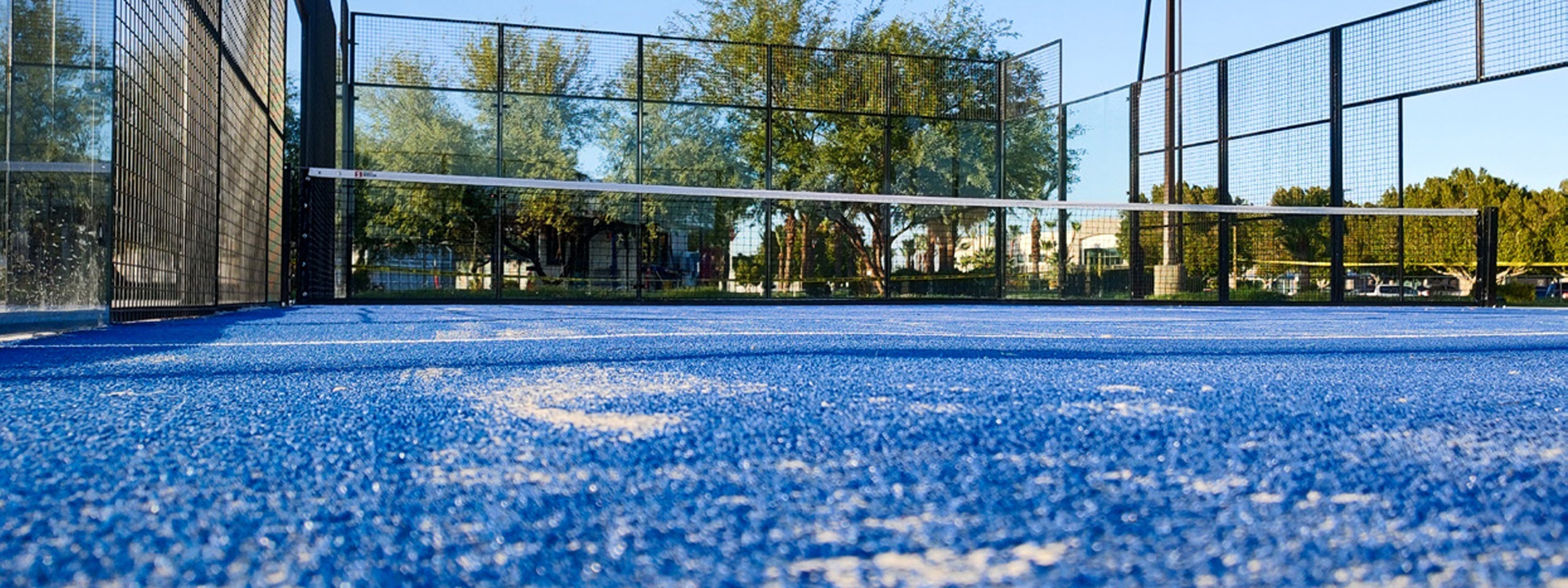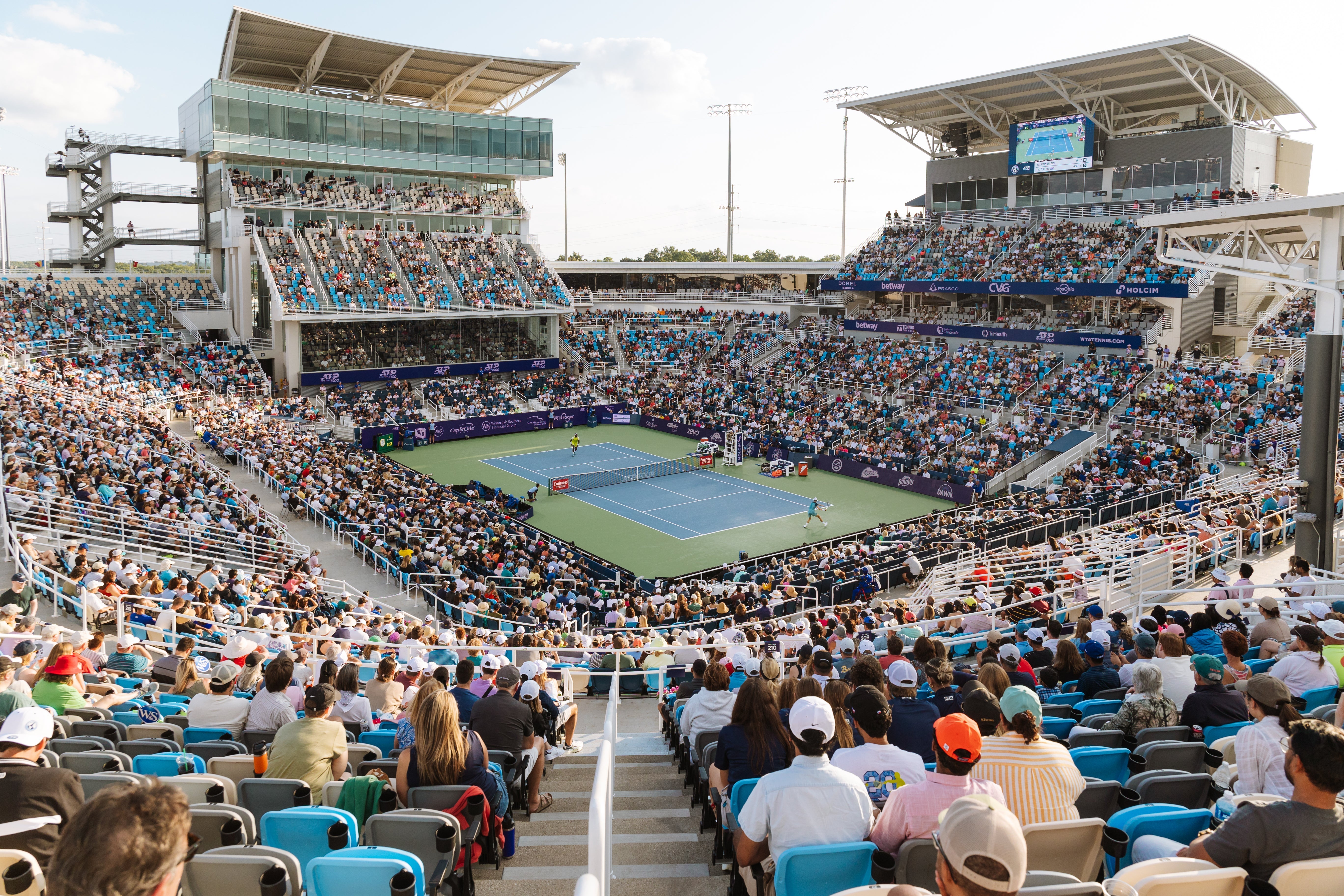
As discussed in the last post, spring weather can change rapidly and as it does, so will the condition of your HAR-TRU court. The last blog talked about lessons players can learn to deal with these swings. Now let’s talk about it from the perspective of the maintenance professional.
Cool, wet conditions can make it exceedingly difficult to firm up the court surface. The rain over-saturates the court and this makes it soft while the cooler temperatures reduce evaporation rates. Players want to get out there regardless and when they play on a soft court they leave footprints and divots, which creates added repair work. So, what should you do?
- First, make sure your courts are draining properly. Winter run-off often clogs drains with leaves and debris. Freeing this up is a must to have any hope for faster drying times.
- Brush the court frequently and in multiple directions. Turning over the top dressing allows water to evaporate more quickly.
- Roll twice a day, preferably after lots of brushing. Rolling will compact the court and help wring water out. A more compact court will shed more water than it takes on. NOTE: Be sure not to roll when the court is so soft that you see the surface shift when you stomp on it. With that much moisture, you risk over compacting and delaminating the surface from the stone base below and this can be hard to fix.
- If installed, roll up the bottom half of your windscreens. This will allow more air and wind to move across the surface. Wind and air do as much or more to dry out the surface than the sun does.
Hot, dry conditions often show up almost overnight, and are often combined with lots of wind. Evaporation rates are extremely high and the surface quickly becomes slippery and unstable, and can even become unsafe. So, what should you do?
- Anticipate! I have seen so many facilities hold back on water because of how wet the courts are and the next thing they know, they are bone dry. Watch your forecasts closely and start adding extra water ahead of the heat and wind.
- Reduce brushing. As stated above, brushing turns over the top dressing and speeds evaporation. When you do brush use an Aussie Clean Sweep in place of the standard drag brush as it grooms the court while disturbing less material.
- Increase the number and length of watering cycles, particularly overnight. At night, wind and evaporation rates are lower so more water can be absorbed. Water for several short to medium length cycles at 9 PM, 12 AM, 3 AM and 6 AM.
- Add two, 50 LB bags of Calcium or Magnesium Chloride per court each week while conditions persist. These chlorides literally draw moisture out of the air and this keeps the surface stable and traction safe.



